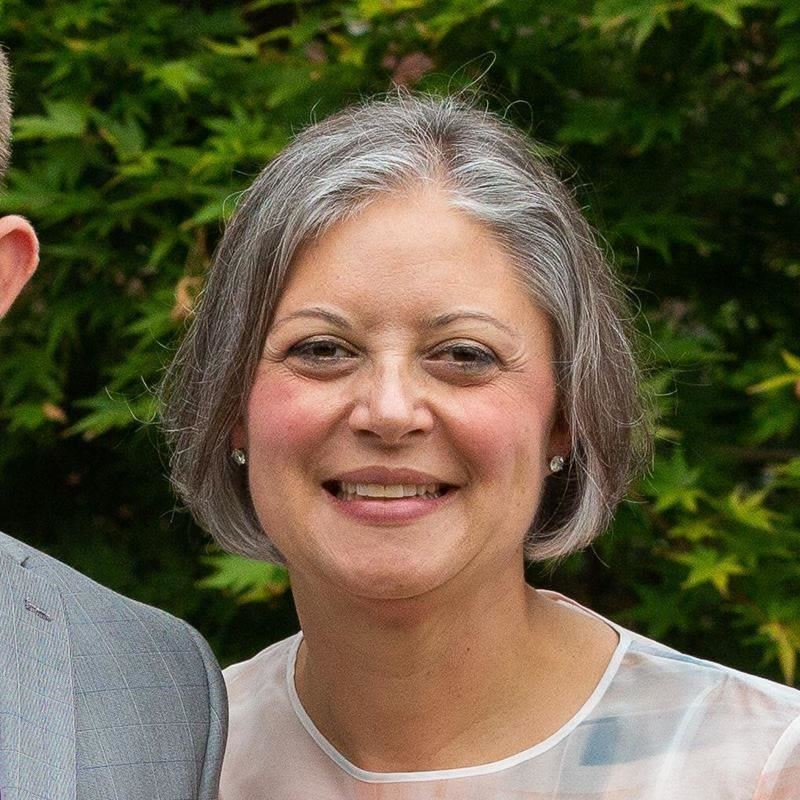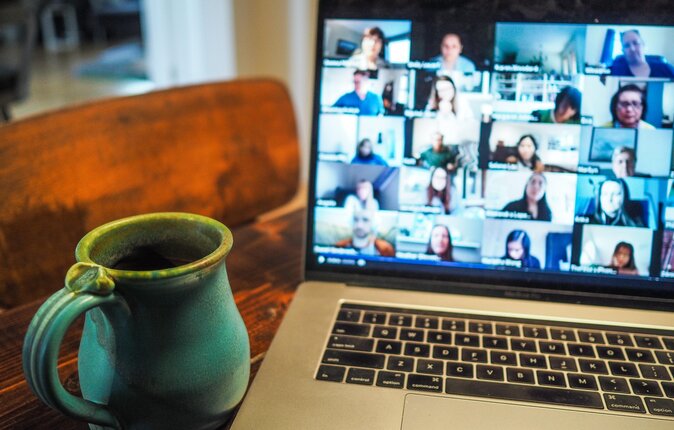12
Aug 2021
Cost: A Conversation About People Not Dollars
Pilot WFF and WGF/DS Alum Jennifer Weinstock (Class 26)
It is November 14, 2020, and I’m standing in front of a most moving piece of contemporary art. A wall of color and expression, it’s a remarkable piece by British artist Damien Hirst. I am in the Arken museum in Denmark, except I’ve never actually been to Denmark. And of course, it’s 2020 so I haven’t left my house in months. And yet it feels as if I am there, as if I’m really standing at the base of this magnificent painting, something I likely will never see in person. It was easy, personal, low cost, and I even went to the museum in my pajamas.
For me, thinking about the cost of Jewish life is against this backdrop. The pandemic has accelerated change in many areas of our society, and Jewish life was no exception. And now we have a choice: to go back to the before times and try to make our new world fit our old system, or to continue to accelerate change and innovation.
This year had many silver linings of a slower, hyper local lifestyle and at the same time technology and innovation have made it possible for the whole world to be at our fingertips. Every one of us pivoted and pivoted again during this pandemic. Some of those pivots cost more than we expected and some of them cost less. Like my visit to the Danish museum, we all reported seeing new users and members join us.
Which is great. One of the most logical ways to lower the cost of Jewish life is to have way more users in general. Higher volume might allow many organizations to be able to offer low cost and no cost offerings for those who cannot afford Jewish life at all.
At the same time, I’ve also been thinking how we might need to change the entire conversation to really address the cost of Jewish life – and make it more of a conversation about people than dollars. The current discussion of cost is based on a privileged system. It assumes a lot about the end user and those assumptions alone are leaving many in our community on the outside.
The privilege of cost. The pain of paying for Jewish life is very real for many of us. My family math starts here:
2 synagogue memberships + 3 kids x 18 years Jewish day school + 3 kids x 7 summers each at overnight camp + 3 kids x Israel teen trip + JCC membership etc.
I can’t even do that equation, but let’s just say it adds up to a lot. Like many engaged in Jewish life, there is a long list of things we didn’t do because we were doing and paying for Jewish life. And yet, the pain of having the opportunity to pay for all these things reflects my privilege.
Assumption of Identity. I grew up in a completely secular home. And I mean secular. No synagogue, no matzoh ball soup, no Bubbie speaking Yiddish. I think my family could have paid for aspects of Jewish life but honestly, they didn’t know they existed. Without a connection to the Jewish community, these choices are not even on the table. If my parents had been invited in – welcomed – would we have gone to a Jewish overnight camp instead of a YMCA camp? Possibly. It is a limiting assumption that cost is the only factor that keeps people out. Many think, “if only we could lower the cost more people would join.” But for my family there were many layers that kept us out and cost was pretty far down that list.
Additionally, I am a cis-gendered white woman. And with that comes privilege in Jewish life. Everyone assumes I belong when I show up in a Jewish space. Even though I grew up with absolutely no background or Jewish education, when I enter a synagogue, people believe I should be there. On the inside I may feel that I don’t belong, but the color of my skin and my gender identity are considered Jewish enough. It is a privilege to worry about the cost barrier because I don’t have to worry about all the other barriers that keep me from accessing Jewish life. Why would someone pay for Jewish life that does not welcome them as they are, that makes them feel othered?
On top of that, I am married to a man and we have children. Many years ago, we had guests over for Shabbat and of course the adults were all complaining about the cost of day school education. A single friend at the table said half-jokingly, “I wish I had children so I could worry about the cost of educating them.” In their mind it was a throw away comment, but it has stuck with me deeply. I worry about the cost because all the costs are available to me. The conversation about cost still assumes a narrow definition of whom we are hoping will engage with Jewish life. This privilege leaves many members of our community on the outside. Several years ago, one of my own Wexner friends gave an inspirational d’var torah about this at an institute, challenging us to think about the very definition of who belongs in our community and how our structures, cost at the center, make many feel pushed to the sidelines.
One of the ways to make Jewish life more affordable would be to exponentially increase the number of users in our system. How can we do that in a way that feels radically inclusive while also acknowledging the needs of those who cannot afford Jewish life? What would need to be true for all members of our community to feel welcomed to the debate about cost, so that all our voices would be heard in the conversation around the most critical parts of a Jewish community?
One of the reasons we have all seen an uptick in attendance at our virtual events, services, and programs is because the accessibility is radically different in online settings. No one can see you or decide if you are the right kind of person for this event. You don’t have to worry about who you will know at services or if you will be the “right” kind of Jew for the crowd. You can come as you are.
I don’t have any easy solutions and yet I hope that the lessons we have learned from this pandemic will push us all to think in new ways about old problems. Let’s commit to radical accessibility, radical welcoming, and making it as easy and compelling to opt into Jewish life as it is to visit a museum in Denmark in pajamas.

Photo by Chris Montgomery on Unsplash
Get To Know The Author
Pilot WFF and WGF/DS Alum Jennifer Weinstock (Class 26) is the Senior Vice President of Philanthropy at CJP (Jewish Federation) in Boston.

